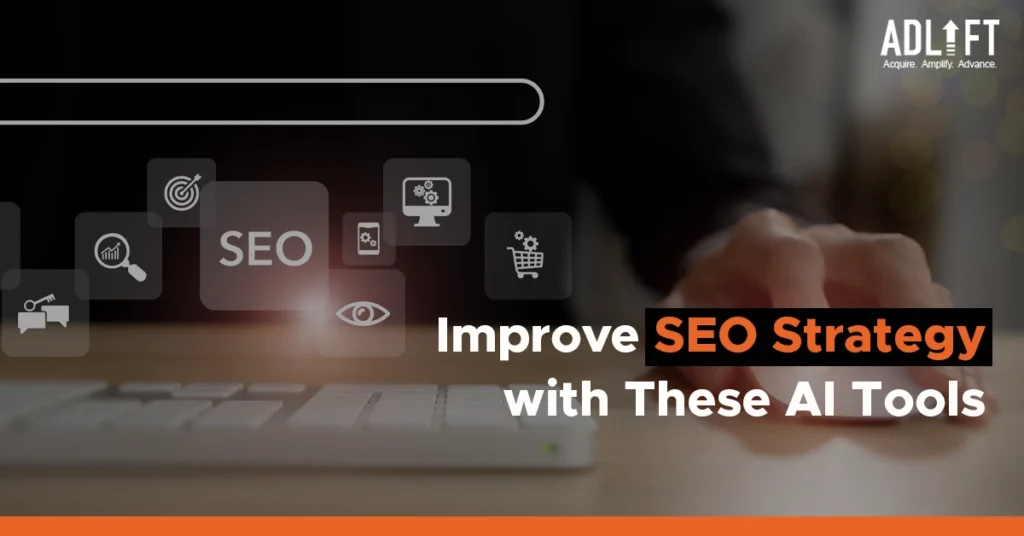
In the ever-evolving world of digital marketing, search engine optimization (SEO) is no longer just about keywords and backlinks—it’s about staying ahead of the curve. As search algorithms grow more complex and user behavior becomes harder to predict, businesses need to adapt faster than ever. Enter: AI-powered SEO tools.
If you’re not already incorporating artificial intelligence into your SEO strategy, you’re leaving growth—and visibility—on the table. Here’s how AI is reshaping SEO and what you can do to future-proof your strategy for the long haul.
Google updates its algorithms thousands of times a year. While not every update is earth-shattering, major changes like Google’s Helpful Content Update or the rise of Search Generative Experience (SGE) can radically shift your rankings overnight. Businesses that rely solely on traditional SEO practices risk being left behind.
Future-proofing means creating a resilient, adaptable strategy that thrives through change. AI helps with this in several key ways.
1. Smarter Keyword Research with AI
Old-school keyword tools only scratch the surface. Today’s AI-powered platforms (like Surfer SEO, Clearscope, or Ahrefs AI) go deeper:
- They analyze user intent
- Identify semantic relationships
- Predict trends based on search behavior patterns
Instead of chasing exact-match keywords, AI helps you create topic clusters and understand the full context behind queries, leading to more relevant and comprehensive content.
2. Content Creation & Optimization at Scale
AI writing tools like ChatGPT, Jasper, and Copy.ai are now capable of drafting blog posts, product descriptions, and even video scripts based on SEO best practices. But it’s not about replacing humans—it’s about amplifying what your team can do.
AI tools help you:
- Generate content outlines in seconds
- Optimize for readability, engagement, and structure
- Suggest keyword placements and LSI terms
Combined with human oversight, this is a massive time saver.
3. Technical SEO Audits Made Easy
AI can now perform comprehensive site audits that go far beyond broken links or slow load times. Tools like Screaming Frog with AI integrations, SEMRush, and Sitebulb analyze:
- Site architecture and crawl depth
- Core Web Vitals issues
- Schema markup opportunities
- Internal linking strategies
Plus, they prioritize fixes based on estimated SEO impact—helping you focus efforts where it counts.
4. AI-Driven Competitor Analysis
Keeping an eye on competitors has always been part of SEO, but AI makes it more insightful. Platforms like MarketMuse or Crayon track:
- Competitor keyword gaps
- Content performance over time
- Backlink acquisition strategies
AI doesn’t just collect data—it interprets patterns and highlights what strategies are working for others, giving you a competitive edge.
5. Predictive Analytics & SEO Forecasting
What if you could see into the future of your traffic? AI enables predictive SEO, using machine learning models to forecast traffic changes, ranking volatility, and seasonality.
This allows marketers to:
- Anticipate performance dips
- Plan content calendars proactively
- Justify SEO investment with data-backed predictions
Forecasting tools are already being embedded in platforms like BrightEdge and Conductor.
6. Preparing for AI-Powered Search (Like SGE)
With Google’s Search Generative Experience and Bing AI search rolling out, we’re seeing a shift toward answer-based search rather than just ranking 10 blue links.
To prepare:
- Optimize for featured snippets
- Use structured data and schema
- Build authoritative, E-E-A-T-compliant content (Experience, Expertise, Authoritativeness, Trust)
AI can help surface these insights and tailor your strategy accordingly.
Final Thoughts: Human + AI = Future-Proof SEO
AI isn’t a magic wand—but it’s a multiplier. The brands that succeed in the next phase of search will be the ones that use AI to work smarter, not harder.
Don’t view AI as a threat to SEO. Embrace it as a co-pilot that helps you navigate change, adapt quickly, and outpace your competition.
TL;DR:
To future-proof your SEO strategy with AI tools:
- Embrace smarter keyword research and content optimization
- Use AI-driven audits and forecasting
- Adapt to AI-powered search results (SGE, Chat Search)
- Combine human creativity with machine intelligence
The future of SEO isn’t just AI-powered—it’s AI-enhanced.
